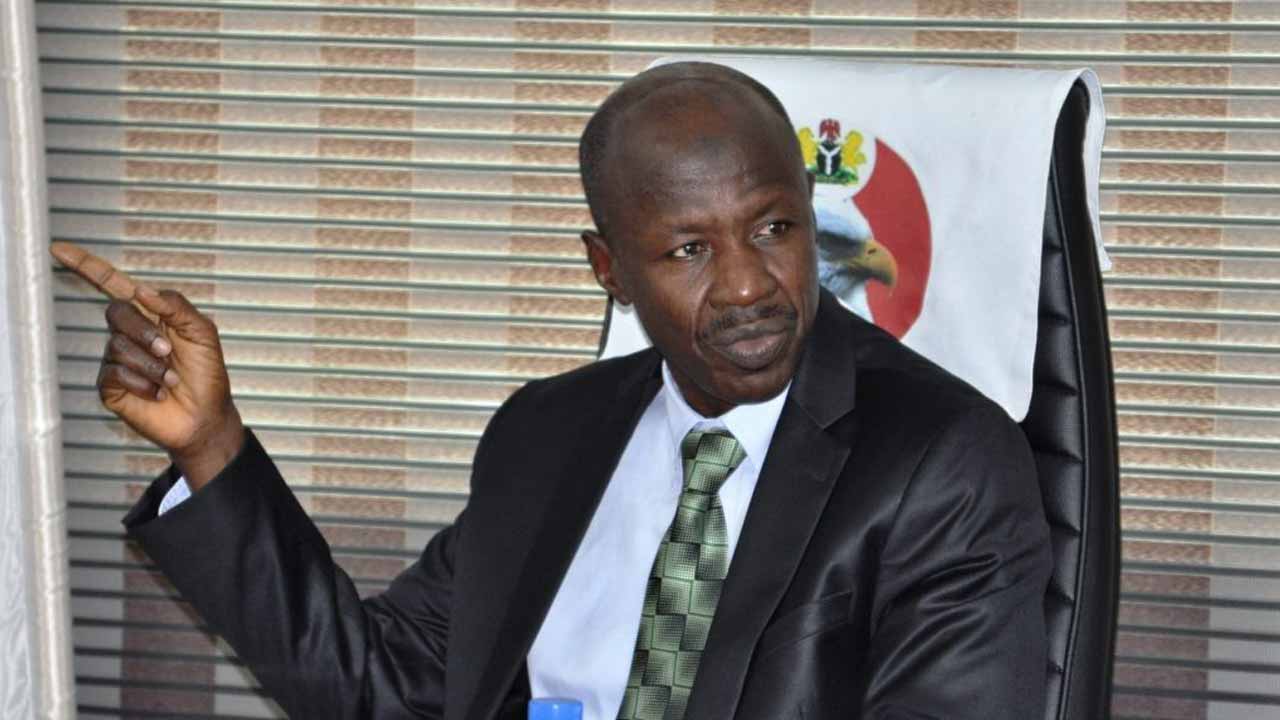- Magu: 90% of The Cause of our Recession is Corruption
Acting chairman of the Economic and Financial Crimes Commission, Mr. Ibrahim Magu, has said that corruption is virtually the sole reason for the country’s current economic slump. In an interview with Arise TV yesterday, Magu said it was because of the central place of corruption in the present economic woes that the federal government was paying a lot of attention to the recovery of stolen funds.
“I maintain that the economic recession is caused by corruption. About 90 per cent of the cause of recession is corruption, because there was fund and people stole the funds and kept them where they cannot be reached,” the EFCC chairman stated during the interview programme anchored by ace broadcaster Jeff Koinange.
Magu added that if a sizable part of the funds looted from the public treasury in Nigeria were recovered, the country would be out of recession within a short period. “If we can lay hands on this hidden wealth, we won’t stay for more than three months in this recession. It is sufficient for us to get out of economic recession,” he stated.
Appealing to all those still holding or hiding looted money to voluntarily return them, Magu said, “I think they should just come out and approach the government and say, ‘this is what I have.’ Our emphasis now is on the recovery of the looted fund. People should come out and give us full disclosure, we would go after it.”
On the suggestions in some quarters about possible amnesty for those who heed the call for the return of fleeced public assets, Magu said, “I’m not sure of that. But we encourage recovery if you can voluntarily bring out this thing, disclose this thing. It is the government that would decide. We encourage people to come out and disclose the looted funds.”
He said, “They should cooperate with the government. They should come forward and declare what they have looted and the government will take its decision.
“Everybody must join in the fight against corruption. It’s very necessary for the future of this country, for a better tomorrow.”
In a related development, EFCC said yesterday that the former Group Managing Director of the Nigerian National Petroleum Corporation, Mr. Andrew Yakubu, will remain in the commission’s custody until investigation into the corruption allegations against him were concluded.
Yakubu was arrested over an alleged discovery of about $9.8 million cash in one of his houses in Kaduna State by EFCC operatives. Another £74,000 was also allegedly found in his house.
The monies, discovered at Sabon Tasha, a slummy suburb located in the outskirts of Kaduna town, were suspected to be illicit funds and proceeds of money laundering. The house where the money was found was under the custody of one Mr. Bitrus Yakubu, a brother to the former NNPC GMD.
EFCC’s head of media and information, Wilson Uwujaren said that Yakubu “will remain under custody” until thorough investigation was conducted, before he will be charged to court.
Uwujaren did not give details of the investigation and when Yakubu would be taken to court.
Yakubu had during interrogation by the EFCC said the money was “a gift” from a close associate.
He was the NNPC GMD between 2012 and 2014, when he was sacked by the then president, Dr. Goodluck Jonathan. His sack had raised controversy at the time, as some observers, especially from the opposition camp, attributed it to political witch-hunt.


 Naira4 weeks ago
Naira4 weeks ago


 Naira4 weeks ago
Naira4 weeks ago




 Naira4 weeks ago
Naira4 weeks ago




 Naira3 weeks ago
Naira3 weeks ago
 Commodities4 weeks ago
Commodities4 weeks ago


 News4 weeks ago
News4 weeks ago
 Travel4 weeks ago
Travel4 weeks ago




 Naira3 weeks ago
Naira3 weeks ago





















